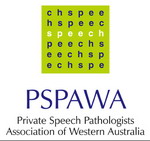|
|
 |
 |
 |
 |
|
 |
|
|
|
What is literacy ?
Literacy skills are the written form of language – reading, writing and spelling and develop from a foundation of oral language skills. Literacy skills are made up of phonological (sound) awareness, print knowledge, reading (including comprehension), writing and spelling.
What are literacy difficulties ?
Children may have difficulties ‘cracking the code’ required to learn all the skills necessary to read, write and spell successfully.
Some of these skills include:
- rhyming
- segmenting words into syllables and sounds
- knowing the alphabet
- sound-letter association
- sounding and blending words
Children without these skills are likely to have difficulty with reading, understanding what is read (including following written instructions and maths stories), spelling, and writing sentences, recounts, stories, and reports.
Literacy challenges may be evident from the time a child begins to learn sound, reading, spelling and writing skills or later in primary or high school. Children with a history of early speech and language delay or problems are at increased risk of developing literacy difficulties.
What can a Speech/Language Pathologist offer ?
Assessment will provide information about a student’s strengths and weaknesses in understanding and use of language and literacy. Intervention can be planned in collaboration with a classroom teacher or with parents to make the most of therapy time and resources.
Terms that may be used in the topic of literacy difficulties
dyslexia, auditory processing, specific language impairment (SLI), phonological awareness, phonics, reading disorder, writing disorder.
Useful Websites
www.loveandreilly.com.au
Australian site with range of informative newsletters
http://www.asha.org/public/speech/disorders/LBLD.htm
information about language-based learning difficulties
http://www.superduperinc.com/handouts.asp
range of handouts giving activity ideas to assist development of literacy
Useful Resources
Rocket your child into Reading by Jackie French
PSPAWA Members who work with literacy difficulties
|
|
|
|
|
|
|
|
|

